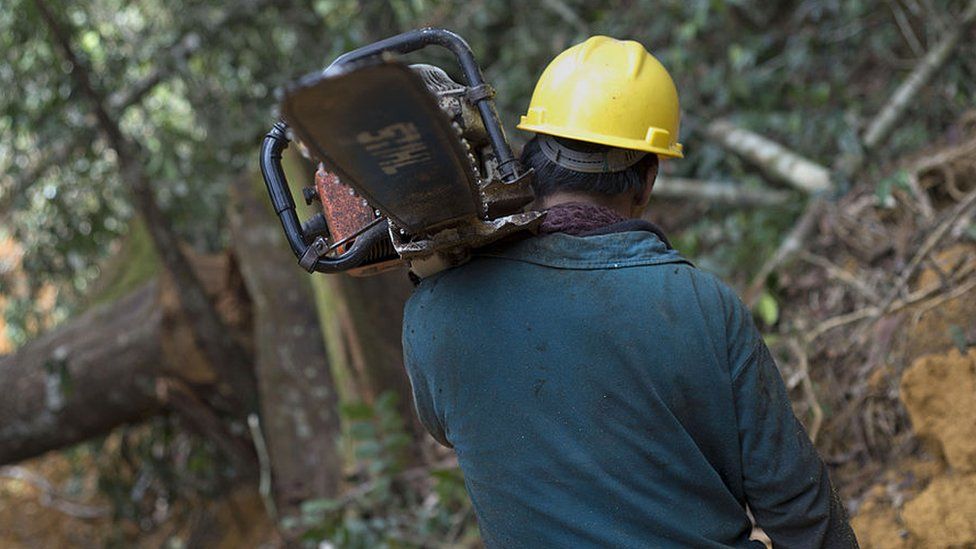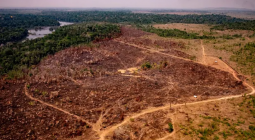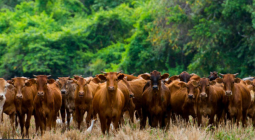Deforestation: Which countries are still cutting down trees?
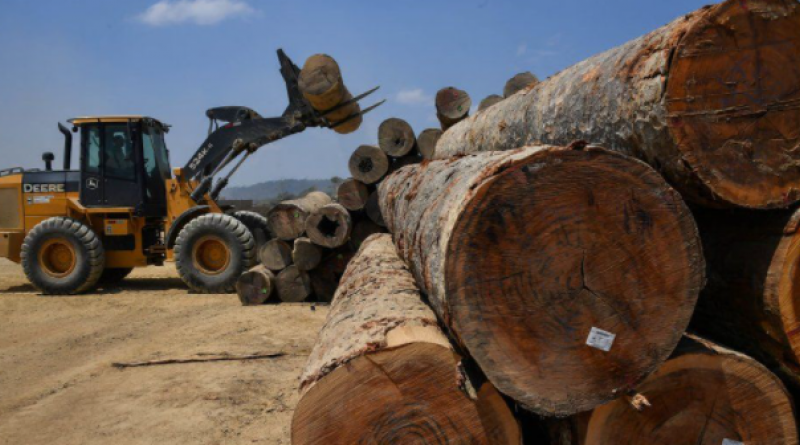
World leaders at the COP26 climate summit in Glasgow have pledged to end and reverse deforestation by 2030.
There have been other attempts to protect forests, but has any progress been made?
How bad is deforestation now?
Forests absorb vast amounts of carbon dioxide (CO2) - a major contributor to global warming - so cutting down trees can have a big impact on climate change.
The UN says 420 million hectares (one billion acres) of forest have been lost since 1990. Agriculture is the main reason for this.
There have been efforts to protect forests before.
In 2014 the UN announced a deal to halve deforestation by 2020 and end it by 2030.
Then, in 2017, it set another target to increase forested land by 3% worldwide by 2030.
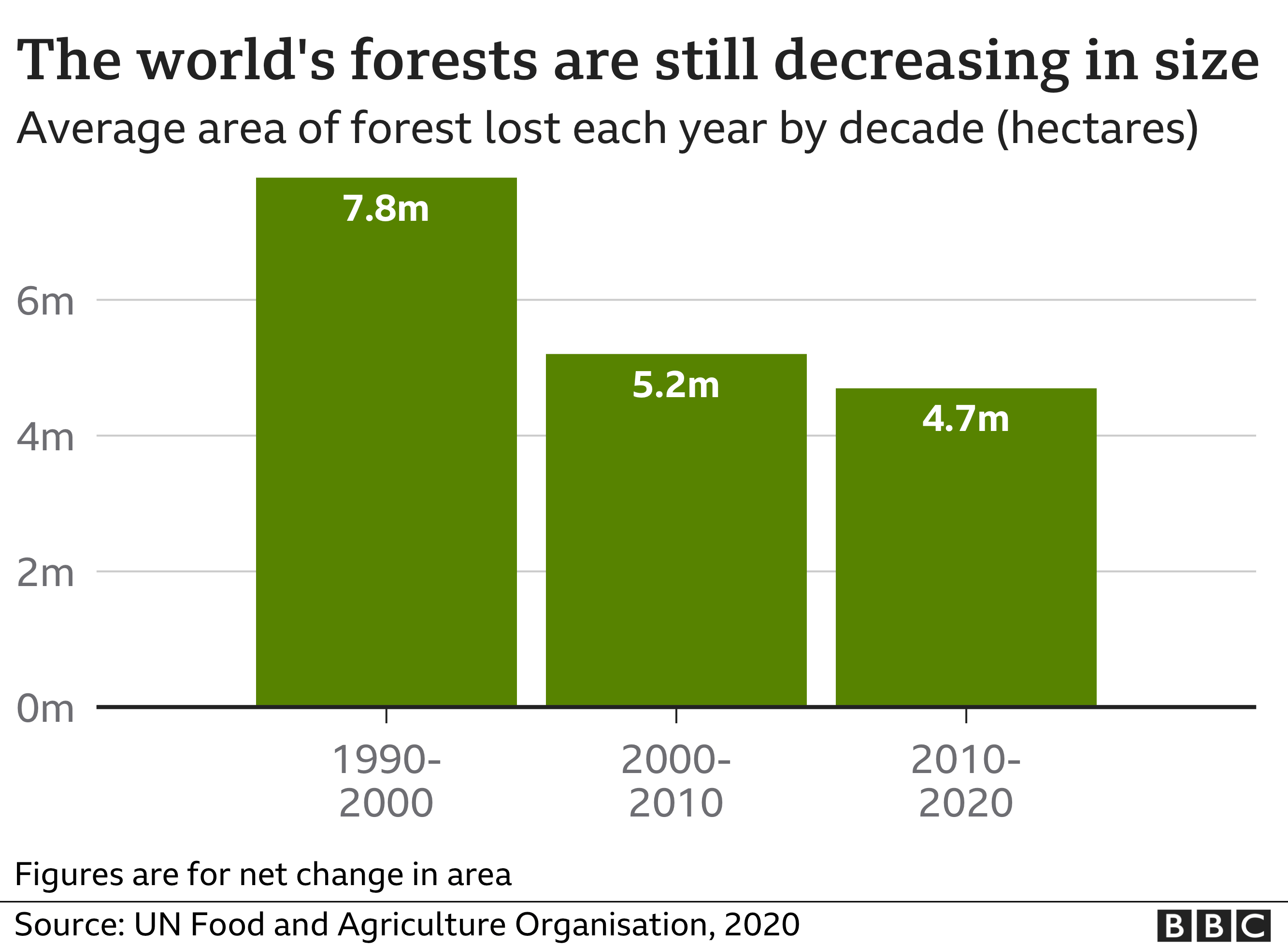
But deforestation continued at "an alarming rate", according to a 2019 report, with serious consequences for the fight against climate change.
There has been some reforestation, through natural growth or planting, but trees need years to mature before they can fully absorb CO2.
Over the past decade 4.7 million hectares of forest were still lost annually - with Brazil, the Democratic Republic of Congo and Indonesia among the countries worst affected.
Brazil: Illegal logging continues
Some 60% of the Amazon rainforest is in Brazil, and it plays a vital role in absorbing harmful CO2 that would otherwise escape into the atmosphere.
After falling steadily since 2004, deforestation in Brazil's Amazon has risen again, according to the country's National Space Research Institute (INPE). It said in 2020 that the deforestation rate was its highest in more than a decade.
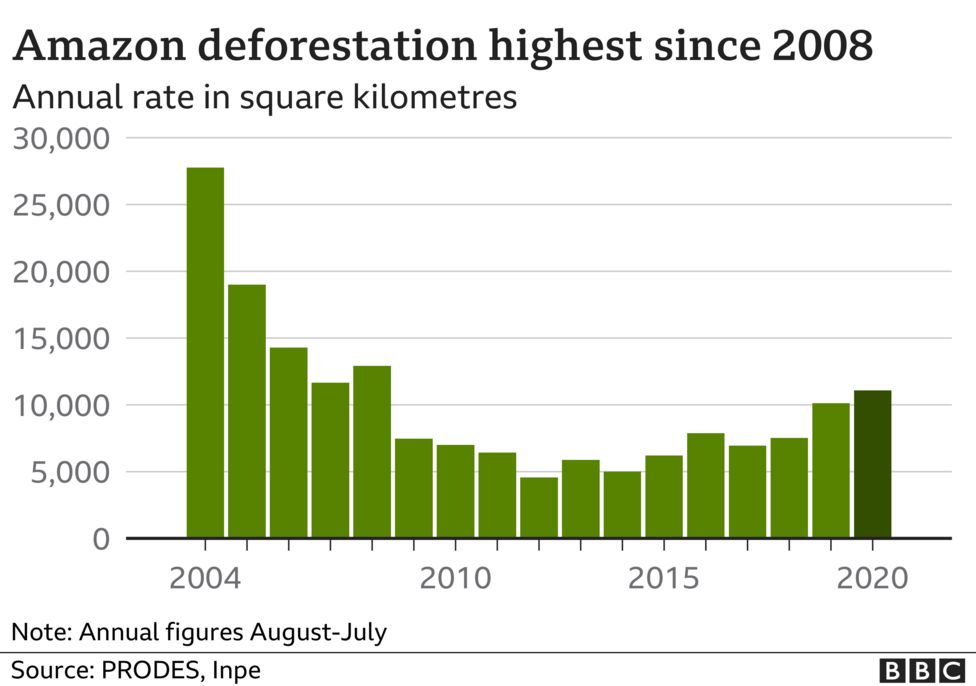
Brazil's president, Jair Bolsonaro, told the UN that, as of August this year, deforestation in Brazil was down compared with 2020. However, the rate of deforestation is still higher than before he came to office in 2019.
And Imazon - a research institute focused on the Amazon - says its data does not show the rate of deforestation slowing down this year.
President Bolsonaro has been criticised for "anti-environment" policies, such as encouraging agriculture and mining in the Amazon.
He has cut the funding for the government agencies that are responsible for prosecuting farmers and loggers who break environmental law. Fines for illegal logging fell by 20% in 2020.
Exact figures are not available, but recent studies suggest as much as 94% of deforestation and habitat destruction in Brazil could be illegal.
Brazil is not the only country responsible for the deforestation of the Amazon - neighbouring countries, including Bolivia, also contribute.
